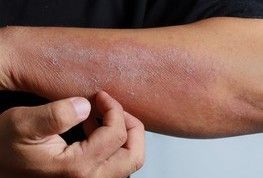News
Article
OCU400 Improves 2-Year Vision in Retinitis Pigmentosa in Phase 1/2 Trial
Author(s):
Key Takeaways
- OCU400 gene therapy showed improved or preserved visual function in all treated RP patients over two years, demonstrating its potential efficacy.
- The therapy targets the NR2E3 gene, addressing the dysfunctional gene network in RP to restore cellular homeostasis and improve visual outcomes.
All participants with RP treated with OCU400 gene therapy achieved vision improvement or preservation at 2 years of the Phase 1/2 trial.
Syed M. Shah, MD
Credit: Gundersen Health System

A Phase 1/2 trial update at 2 years reported the positive efficacy and safety of OCU400, a novel modifier gene therapy platform, for treating early to advanced retinitis pigmentosa (RP) in pediatric and adult populations.1
As announced by Ocugen on January 13, 2025, all 9 patients with RP in the Phase ½ trial treated with OCU400 experienced improved or preserved visual function at both 1 and 2 years of study, compared with the untreated fellow eyes.
“It is truly remarkable to see the significant improvements in visual acuity in patients treated with OCU400 sustained at two years,” Syed M. Shah, MD, vice chair for research and digital medicine, director of the retina service at Gundersen Health System, said in a statement.1 “The broad spectrum of genes and mutations causing RP presents a unique challenge in developing treatments for this unmet need.”
OCU400 is a modifier gene therapy product based on the nuclear hormone receptor gene NR2E3. This gene regulates physiological retinal functions, including photoreceptor development and maintenance, metabolism, phototransduction, inflammation, and cell survival. Individuals with RP experience a dysfunctional gene network, for which OCU400 can potentially reestablish healthy cellular homeostasis and improve visual outcomes.
Nearly 2 million people globally, including approximately 300,000 in the US, are impacted by RP.2 With patients with RP progressively losing vision, and experiencing the potential for legal blindness, Ocugen indicated OCU400 could offer a one-time therapy solution to restore or preserve vision.
In the Phase 1/2 trial, OCU400 achieved a meaningful improvement of a 2-line gain (~10 ETDRS letters) in low-luminance visual acuity (LLVA) in all treated eyes (n = 9/9), compared with untreated fellow eyes.1 Ocugen reported the treatment effect was statistically significant (P = .01) in all participants, irrespective of mutation at 2 years, validating the therapy’s gene-agnostic mechanism of action.
“Establishing the long-term safety and efficacy of OCU400 demonstrates the durability of this novel gene therapy,” Huma Qamar, MD, MPH, chief medical officer at Ocugen, said in a statement.1 “These 2-year LLVA findings, which are the most sensitive measure of visual function, are consistent with the results observed at 1 year.”
Further analyses showed all (100%) treated evaluable participants demonstrated improvement or stabilization in mobility testing, which OCugen noted was only performed for up to one year. Safety reports showed a favorable long-term tolerability profile, without serious adverse events (SAEs) related to OCU400 treatment.
In the release, Ocugen announced the Phase 3 OCU400 liMeliGhT clinical trial is currently ongoing, with Biologics License Application (BLA) submission expected in the first half of 2026.
“We are thrilled to share these compelling results from the Phase 1/2 OCU400 trial,” Shankar Musunuri, PhD, MBA, chairman, chief executive officer, and co-founder of Ocugen, said in a statement. “These findings represent a significant step forward in our mission to bring life-changing therapies to patients with inherited retinal disorders and confirm the transformative potential of our modifier gene therapy platform.”
References
- Ocugen, Inc.. announces positive 2-year data across multiple mutations from phase 1/2 clinical trial of OCU400 -A novel modifier gene therapy for retinitis pigmentosa. Ocugen, Inc. January 13, 2025. Accessed January 13, 2025. https://ir.ocugen.com/news-releases/news-release-details/ocugen-inc-announces-positive-2-year-data-across-multiple.
- O'Neal TB, Tripathy K, Luther EE. Retinitis Pigmentosa. [Updated 2024 Feb 12]. In: StatPearls [Internet]. Treasure Island (FL): StatPearls Publishing; 2025 Jan-. Available from: https://www.ncbi.nlm.nih.gov/sites/books/NBK519518/



